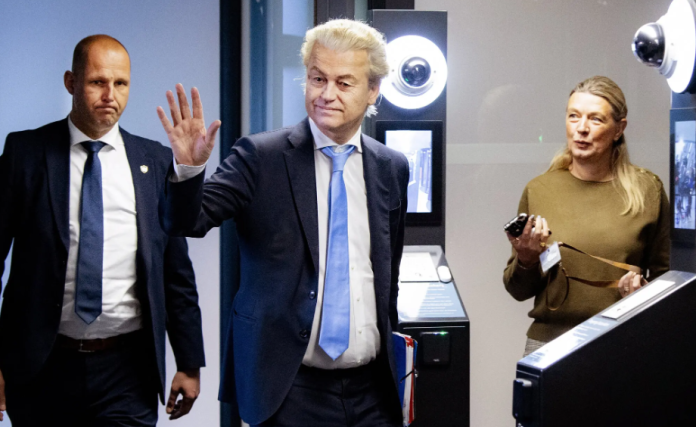Geert Wilders, whose Freedom Party (PVV) came first in Dutch elections late last year, has admitted he will not become the next prime minister because his potential coalition partners do not support him, The Guardian reports.
Wilders said on X late on Wednesday:
“I can only become the prime minister if all the parties in the coalition support it. That was not the case. Love for my country and voters is bigger and more important than my own position.”
He later added another post saying he would “still become prime minister of the Netherlands” one day. He wrote:
“With the support of even more Dutch people. If not tomorrow, then the day after. The voice of millions of Dutch people will be heard!”
The populist PVV party won 37 seats in November – far more than predicted – and has since been in preliminary coalition talks with three potential right-wing allies. Their refusal to accept some of Wilders’ most extreme manifesto promises has already forced him to abandon anti-constitutional measures including a ban on mosques, the Koran and Islamic headscarves, as well as a “Nexit” referendum on leaving the EU.
But the possibility of Geert Wilders becoming prime minister has apparently proved an insurmountable obstacle. One partner, the newly formed NSC party, which campaigned on a platform of “good governance” and “doing politics differently”, announced last month that it would not join the official coalition. At the time, the Algemeen Dagblad newspaper characterised the talks as “venom, mutual sniping and gossip”.
Wilders’ statement came a day before the mediator facilitating the coalition talks, Kim Putters, is due to report on their progress, amid growing speculation of a breakthrough that could lead to a technocratic government.
Earlier, Dutch national broadcaster NOS reported that the four potential partners were considering a scenario in which party leaders would remain in parliament and not join the new government.
Instead, a so-called “extra-parliamentary” cabinet consisting of experienced politicians and experts from outside, not considered close allies of any of the ruling parties, who would work closely with parliament, could be appointed.
Putters emphasised that the parties – the PVV, the liberal-conservative VVD, the populist Farmers and Citizens Movement (BBB) and the NSC – were ready to take the “next step” after two days of “good and intense” talks at a country estate on Monday and Tuesday.
